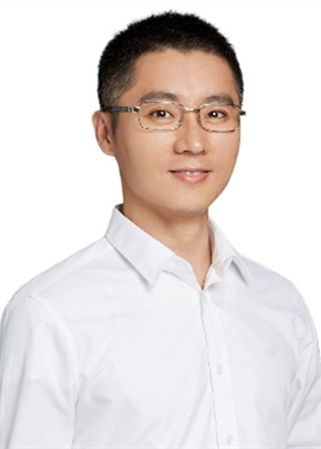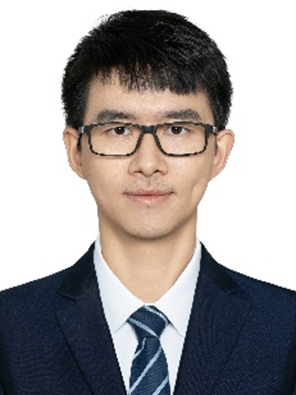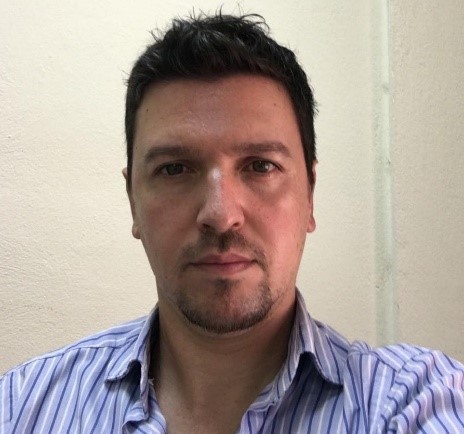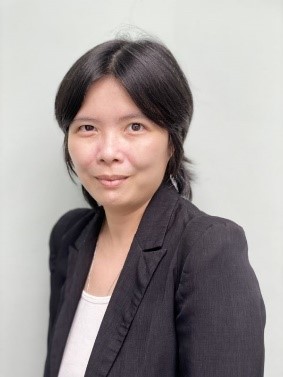 |
Assoc. Prof. Ting Wang
East China Normal University, China
|
Ting Wang received the Ph.D. degree in Computer Science and Engineering from Hong Kong University of Science and Technology, Hong Kong, China, in 2015. He is currently an associate professor with the Engineering Research Center of Software/Hardware Co-design Technology and Application, Ministry of Education, China; the Shanghai Key Laboratory of Trustworthy Computing; East China Normal University (ECNU), Shanghai, China. Prior to joining ECNU in 2020, he worked at the Bell Labs as a research scientist from 2015 to 2016, and at Huawei as a senior engineer from 2016 to 2020. He has published more than 80 peer reviewed papers in top journals and conferences including INFOCOM, AAAI, IJCAI, ACM MM, IEEE TPDS, IEEE TC, IEEE TWC, IEEE TSC, IEEE IOTJ, IEEE TNSE, ACM Computing Surveys, and so on. He is the founding editor-in-chief of IITCIB, and the technical committee member of Computer Communications, Elsevier. His research interests include cloud computing, edge computing, distributed machine learning, Edge AI, multi-agent reinforcement learning, and AI-aided intelligent networking.
Speech Abstract: To be added
 |
Asst. Prof. Weiwei Jiang
Beijing University of Posts and Telecommunications, China
|
Dr. Weiwei
Jiang received the B.Sc. and Ph.D.
degrees from the Department of Electronic
Engineering, Tsinghua University, Beijing,
China, in 2013 and 2018, respectively. He is
currently an assistant professor with the
School of Information and Communication
Engineering, Beijing University of Posts and
Telecommunications, and Key Laboratory of
Universal Wireless Communications, Ministry
of Education. His current research interests
include artificial intelligence, machine
learning, big data, wireless communication
and edge computing. He has published more
than 60 academic papers in IEEE Trans and
other journals, with more than 4600
citations in Google Scholar. He is one of
2023, 2024 and 2025 Stanford's List of
World's Top 2% Scientists.
In addition to his research endeavors, Dr.
Weiwei Jiang actively engages with scholarly
journals as an Editor, including Information
Fusion, Future Generation Computer Systems,
Engineering Reports, Data Science and
Management, Journal of Computational and
Cognitive Engineering, and Indonesian
Journal of Electrical Engineering and
Computer Science, INGENIERIA E
INVESTIGACION, International Journal of
Intelligent Transportation Systems Research,
EAI Endorsed Transactions on AI and
Robotics, EAI Endorsed Transactions on
Industrial Networks and Intelligent Systems.
He is also the Guest Editor for many
journals, including IEEE Transactions on
Industrial Cyber-Physical Systems, ACM
Transactions on Autonomous and Adaptive
Systems, Digital Communications and
Networks, Information Fusion, Neural
Computing and Applications, International
Journal of Intelligent Systems, etc.
Speech Abstract: To be added
 |
Asst. Prof. Apostolos Xenakis
University of Thessaly, Greece
|
Dr. Apostolos Xenakis received his PhD from the Electrical and Computer Engineering (ECE) of University of Thessaly (UTH), GR. He currently serves as an Assistant Professor at the Department of Digital Systems (DS), UTH. Before joining academia, he worked as a Network Analyst and Engineer. Since 2015 he participates in several National and EU funded Projects (Erasmus, Cost Action, Horizon, etc.), either as a Researcher or Scientific Coordinator. He collaborates, as a consulting Professor with (4) PhD candidates and (1) PostDoc Researcher. His research interests focuses on Wireless Networking Technologies and Applications, Wireless Sensor Networks (WSNs) and IoT, Optimization, Next Generation Digital Systems and Applications, Quantum Applications and Engineering Education Technologies. He is the author of several research papers published at International Journals and Conference Proceedings regarding these topics, along with books and book chapters. He also joins conferences Technical Program Committees (TPC) and is co – editor in several Journals. Finally, he is Cisco Instructor and Scientific coordinator of several lifelong learning programs at UTH.
Speech Abstract: To be added
 |
Assoc. Prof. Rushit Dave
Minnesota State University, USA
|
Dr. Rushit Dave
is an Associate
Professor in the Computer Information
Science Department at Minnesota State
University Mankato. Prior joining to MNSU
Dr. Dave was an Assistant Professor in the
Computer Science Department at University of
Wisconsin Eau Claire [2020-2022]. He
received his Doctor of Philosophy degree in
Computer Science from North Carolina A&T
State University and his Master of Science
degree in Computer Science from New York
Institute of Technology. He has published
multiple journal and conference papers in
reputed platforms. Dr. Dave also holds
position in Editorial and Reviewer board at
many Computer Science and Engineering
journal and conference platforms. His
current research focus is on Machine
Learning & Deep Learning Applications of
Cyber Security, Biometrics, IoT Security in
wireless networks, Machine Learning
Applications of Computing in Education,
Object detection using Machine Learning,
Human Activity Recognition using Machine
Learning and Canvas System 2.0.
He helped found, and is currently Director
of Artificial Intelligence, Machine learning
& Security Research [AIMS] Group. This
research group collaborates with Minnesota
State University, North Carolina A&T State
University, Northern Kentucky University and
University of Wisconsin Eau Claire.
Speech Abstract: To be added
 |
Asst. Prof. Napa Sae-Bae
Srinakharinwirot University, Thailand
|
Napa Sae-Bae
is a University
Lecturer at Srinakharinwirot University,
bringing expertise in education and
research. Their background includes a Doctor
of Philosophy from New York University -
Polytechnic School of Engineering.
With a foundation in academic research, Napa
previously served as a Postdoctoral Research
Associate at New York University. Their work
history includes a role as Research
Assistance at Poly, contributing within
telecommunication equipment. During the
period at Rajamangala University of
Technology Suvarnabhumi, Napa served as
Lecturer, applying instructional skills to
higher education. Their work history
includes teaching at the university level.
Informed by work activities in the
technology sector, Napa also completed an
internship at PayPal, focusing on security
research and innovation. Napa holds an IC3
Digital Literacy Certification from
Certiport - A Pearson VUE Business,
demonstrating technology proficiency.
Speech Abstract: To be added
 |
Dr. Chenliang Liu
Central South University, China
|
Chenliang Liu received the Ph.D. degree in control science and engineering from the School of Automation, Central South University, in 2024. He is currently a Lecturer with the School of Automation, Central South University. From 2023 to 2024, he was a joint training Ph.D. student with the School of Chemistry, Chemical Engineering and Biotechnology at Nanyang Technological University, Singapore. He has published more than 50 peer reviewed papers in top journals and conferences including IEEE/CAA JAS, IEEE TSMC, IEEE TC, IEEE TII, IEEE TIE, IEEE TIM, IEEE TASE, and so on. His research interests include deep learning, modeling and optimal control of complex industrial process.
Speech Abstract: In the era of artificial intelligence, industrial processes are experiencing a significant transformation from mechanism-based control to data-driven intelligent optimization. This report presents a comprehensive reflection and exploration on intelligent modeling and optimization decision-making for complex industrial systems. By integrating multi-source heterogeneous data, domain knowledge, and advanced AI techniques such as deep learning, reinforcement learning, and digital twins, it aims to achieve reliable perception, interpretable modeling, and adaptive optimization under dynamic and uncertain operating conditions. Several representative research studies are introduced, focusing on uncertainty-aware modeling, multimodal data fusion, and collaborative optimization of industrial operations, illustrating how artificial intelligence can reshape the understanding, prediction, and control of large-scale industrial processes. The report concludes by discussing the key challenges and future directions toward developing trustworthy, explainable, and human–machine cooperative industrial intelligence.